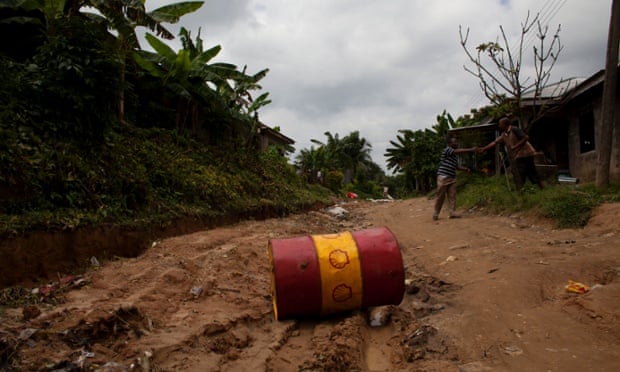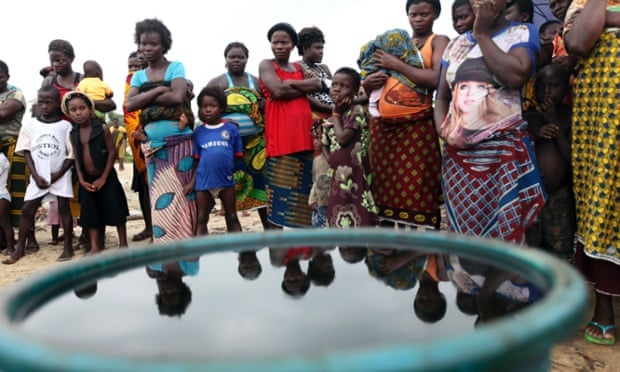• A brief history of oil in Nigeria

But the 15,600 Ogoni farmers and fishermen whose lives were devastated by two large Shell oil spills in 2008 and 2009 will be celebrating on Wednesday as the company’s Nigerian subsidiary announces a £55m settlement.
British banks will start to transfer 600,000 naira (about £2,100) into each of the local people’s accounts and the community will be given millions to build health clinics and refurbish its schools.
The settlement, split £35m for individuals and £20m for the Bodo community, avoids Shell having to defend a potentially embarrassing London high court case which was due to start shortly. It is thought to be the largest payout to any African community following environmental damage and the first time that compensation for an oil spill has been paid directly to affected individuals rather than to local chiefs.
“It’s several years’ earning. I don’t think I have ever seen a happier bunch of people. The minimum wage in Nigeria is 18,000 naira a month and 70% of the Bodo population live below the poverty line. Every single one of the 15,600 has said yes to the deal,” said London lawyer Martyn Day whose team of 20 has just returned from the delta after negotiating the settlement and helping to set up thousands of bank accounts for Ogoni people who did not have one.
Shell’s first offer to the Bodo community in 2011 is understood to have been £4,000. This was raised to £18m in 2013 but was also rejected. According to Shell, the villagers had demanded £300m for the damage done.
In a seperate development, the company’s Nigerian subsidiary Shell Petroleum Development Company of Nigeria (SPDC) said it expected to start to clean up its pollution in the Bodo fishing grounds and swamps “within months”. Shell had initially estimated that around 4,000 barrels of oil were spilt in the two events, but oil experts calculated from film footage that it could have been 60 times as much. According to Amnesty International, Shell had intentionally underestimated the spills in an attempt to minimise compensation payments. This was denied by Shell.

read more guardian